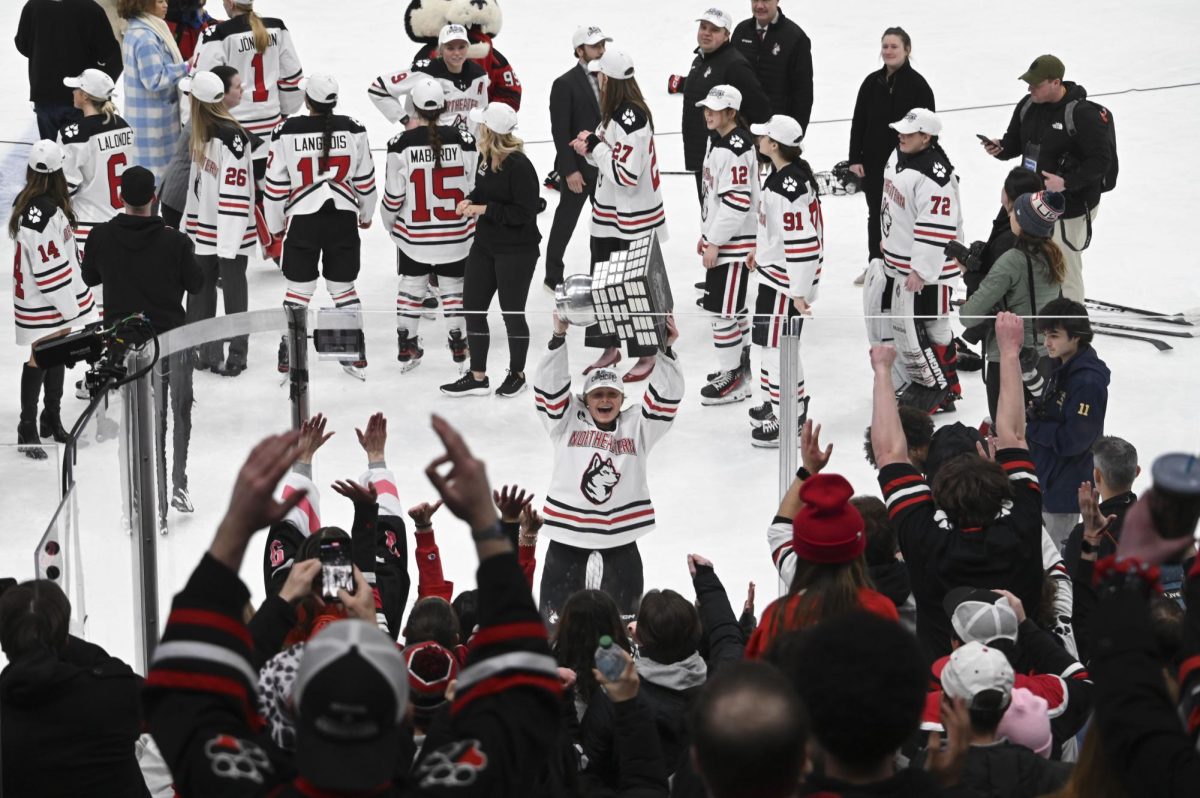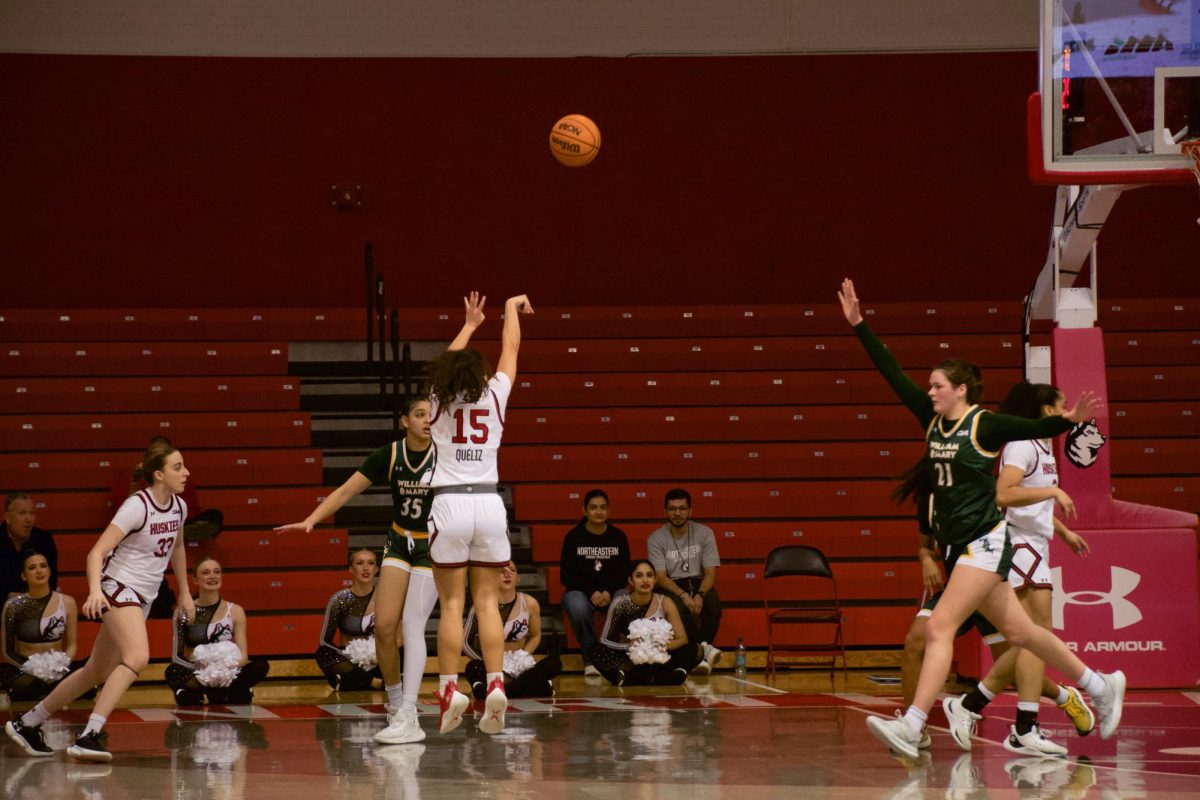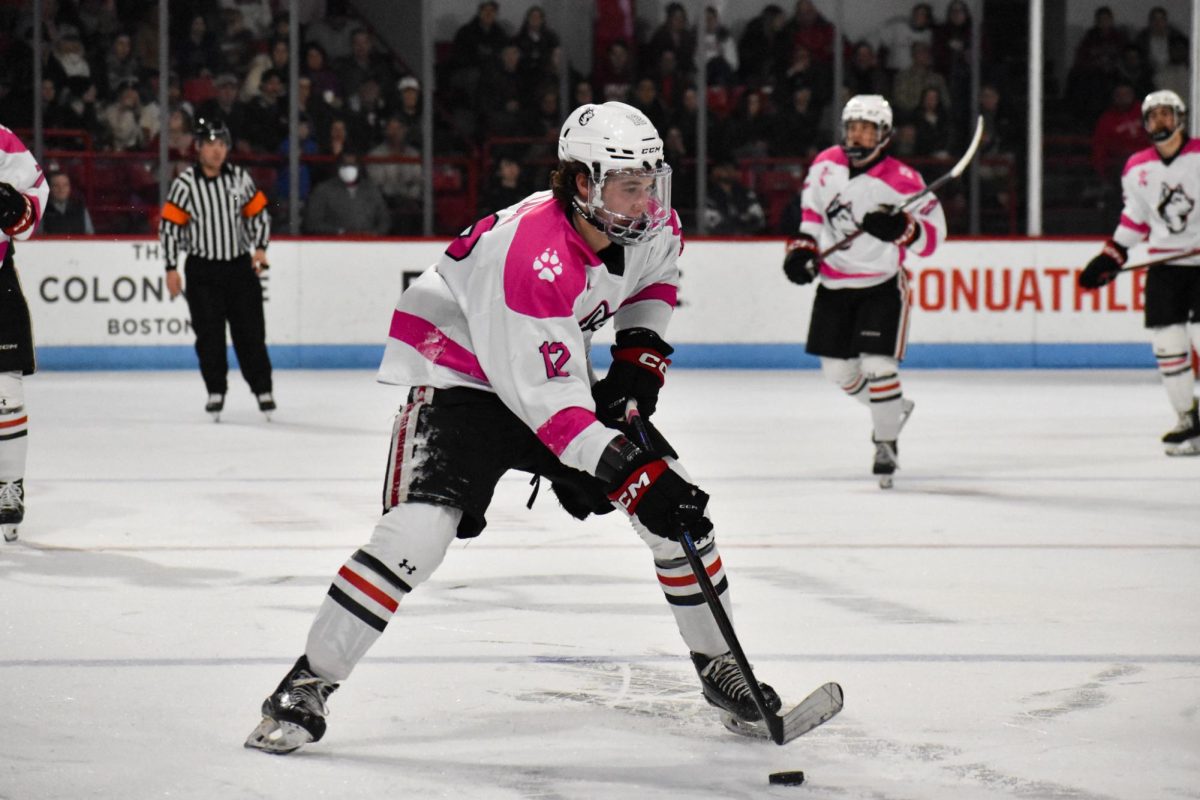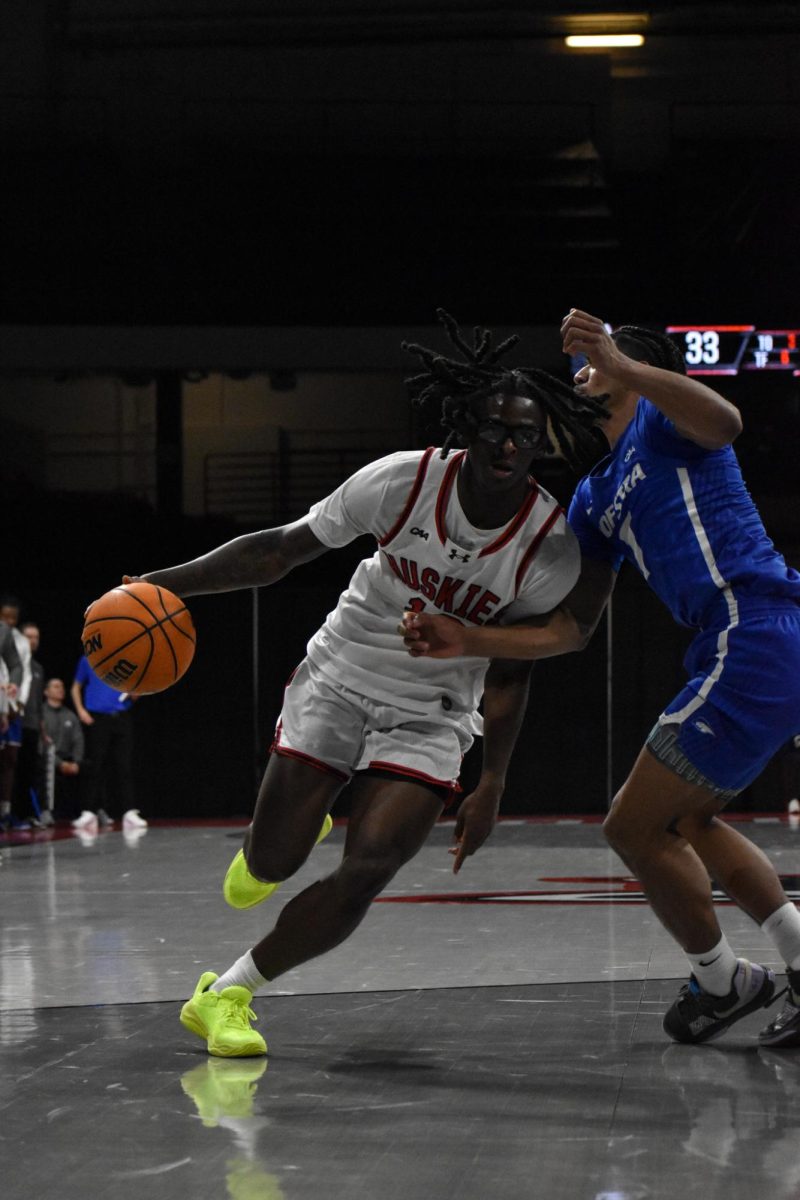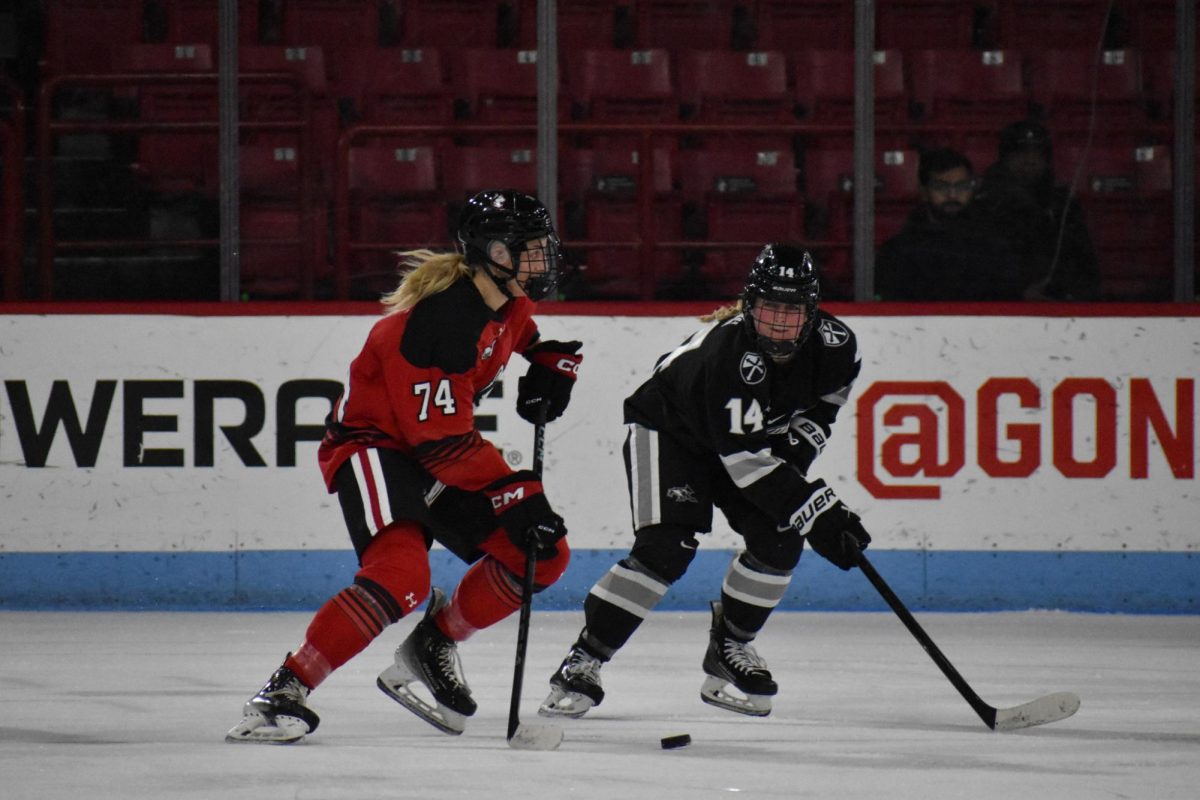By Jill Saftel, News Staff
The crack of dawn during the dead of Boston’s winter might not sound like the ideal time to lift weights and go over plays, but 5:30 a.m. is when the Northeastern men’s club lacrosse team practices three times a week.
“I was nervous for the fact that we were going have practice at 5:30 a.m. and there’d be a lack of commitment and lack of accountability, which can spread like cancer on a team,” junior co-captain Ryan Shea said. “But when you have accountability it spreads like wildfire. We’re pushing each other every day to get better.”
Northeastern club lacrosse is entering its 30th year in 2012, and operates much like a varsity sport with a head coach, with up to six days of practice a week and a schedule that takes the team from coast to coast.
Constant improvement is a phrase heard throughout the team, from their captains to their head coach. The team fell just short of the Patriot Collegiate Lacrosse League Championship (PCLL) last season, falling to SUNY-Buffalo in the final round of the league’s playoffs. A win would have meant a trip to the Men’s Collegiate Lacrosse Association (MCLA) tournament.
The MCLA is made up of club teams at schools without existing varsity level programs, meaning the talent level is of a relatively high caliber, and the Northeastern team is striving to up the ante.
Last year, the team got a new head coach in James Morin, putting it on an upswing, according to senior co-captain Dave Margolius. Aside from coaching at Northeastern, Morin is the athletic director at the Community Charter School of Cambridge and played lacrosse at Saint Anselm College in Manchester, N.H. The Huskies’ 2012 campaign on the road kicked off with long-distance trips to Alabama and Arizona.
“Across the league, we were kind of like the fledgling team. People were only paying attention to because we had a new coach, so we’re trying to turn the page,” Margolius said.
But turning that page won’t come easily. As the NU lacrosse program turns 30 this year, dedication is at an all-time high to help reach that next level.
“This year’s team is definitely at a higher level than the past two, both subjectively and objectively with what they do on and off the field,” Morin said. “They’re willing to make sacrifices and it says something about the character of these guys.”
Because they are not fully funded by the university, team members owe “pay to play” dues amounting to $1,500, according to Morin.
Some players are able to pay the dues via the fortune of their families, but others do their own fundraising in order to make it happen. Morin said the team cleaned the parking lots at Gillette Stadium last year to help offset costs.
The team has also set up extensive alumni outreach programs and fundraising opportunities through those avenues. Margolius said the program has a network of more than 200 alumni via Facebook groups or their own databases. Some have even helped set up events, with one on the horizon when the team travels to California to compete against University of California–Berkeley, Stanford University and University of California–Santa Barbara starting Feb. 21.
With alumni support helping the burgeoning program at one end, recruitment efforts are a focus of the other. The team sent last year’s president, Matt Haffenreffer, to Philadelphia. for the U.S. National Lacrosse Convention with Brian Tedeschi, this year’s vice president. There Margolius said they made several connections and received some pointers in terms of recruitment and maintaining relationships with high school coaches. Apparently, it’s already paying off: During one of their chasing-the-sun morning practices, a recruit showed up at 6 a.m. to watch.
Margolius said by the end of tryouts, they hardly have to make cuts because of the intensity level.
“We take it seriously, most kids don’t know what they’re getting into when they show up,” he said. “Only the ones that really want to be there will stick around when they see what tryouts are like.”
That work ethic is piece of the team’s plan to win an MCLA title. The lofty goal comes after a win in the PCLL, but Shea said the national title is at the forefront of everyone’s mind. First, the team will have to get through a schedule loaded with top-25 teams, a strategic move made to improve their strength of schedule.
With two weeks until their season begins, the team will be continuing to take it day-to-day, pushing each other for that constant improvement.
“It’s awesome to be a part of a group of guys that push me as a leader, to become better on and off the field,” Shea said. “I feel like I have to go harder than everyone, be more prepared for practice and be better on the field. Every ounce I’ve tried to push the team, they’ve stepped up and answered.”



